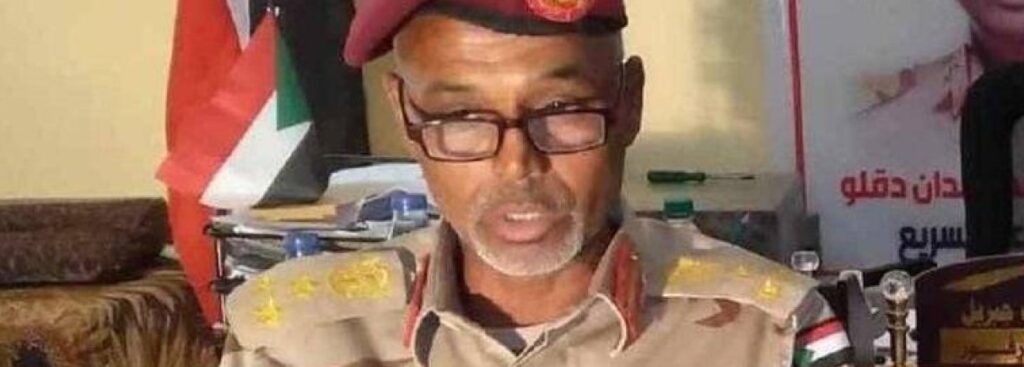Social media activists and some Rapid Support Forces (RSF) leaders have shared photos and videos of the death of RSF commander, Maj Gen Ali Yagoub Jibril.
Jibril’s death occurred on the outskirts of Al-Fasher, the capital of North Darfur State, amidst the ongoing violent clashes in the region.
Observers suggest that his death will likely have severe repercussions for Al-Fasher, potentially escalating violence between the warring factions and leading to civilian casualties. Jibril’s influence and prominence within the RSF are expected to drive intensified and more violent retaliatory actions, possibly turning the confrontations into an ethnic conflict.
The major general played significant combat roles in areas like Zalingei, which the RSF took control of in late October last year, and at Mellit in North Darfur. In mid-May, he was sanctioned by the US State and Treasury Department due to his involvement in the siege of Al-Fasher.
Political analyst Faisal Al-Zubair told Radio Tamazuj that Jibril’s death represents a loss for the RSF and a morale boost for the joint forces, who see it as a significant victory. However, Al-Zubair pointed out that the broader conflict in Al-Fasher lacks direct strategic objectives and has devolved into a localized struggle.
The ongoing violence in Al-Fasher has severely affected civilians, leading to displacements and a humanitarian crisis, thus diminishing the popularity of both factions in the capital of the region. This scenario increases the likelihood of the conflict morphing into a semi-civil war among the social components in the area, including the RSF.
Al-Zubair highlighted that some political elites were attempting to shift the conflict in Al-Fasher into an ethnic strife, thereby undermining the community from within and redirecting the efforts of both factions. This shift aims to convert the broader national political conflict with comprehensive political objectives into a limited regional dispute with minimal impact.
Al-Zubair criticized those who persist in mobilizing and advocating a war that does not serve the community’s interests. Instead, it is over power and influence among elites with historical privileges, who continue to dominate power and wealth. These elites use religious and tribal mobilization tools to create internal strife.




